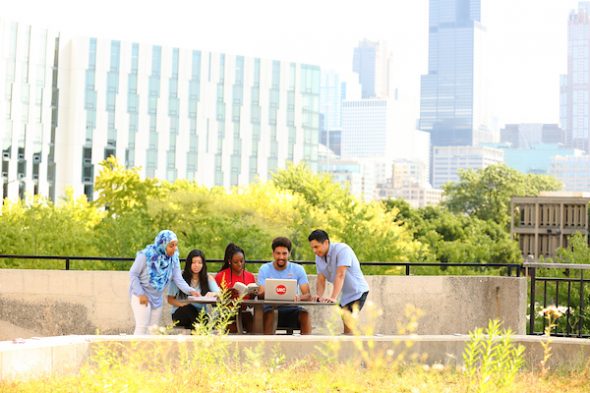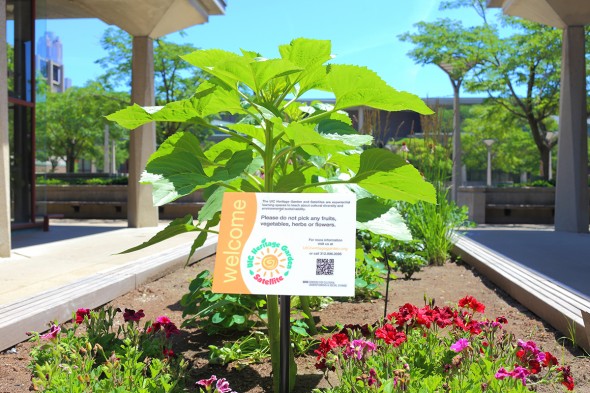UIC earns national acclaim for diversity, inclusion efforts

The University of Illinois at Chicago has received the 2019 Higher Education in Diversity, or HEED, Award from INSIGHT Into Diversity magazine.
The magazine, which is the oldest and largest diversity-focused publication in higher education, recognizes U.S. colleges and universities that, “demonstrate an outstanding commitment to diversity and inclusion.”
UIC will be featured along with 94 other recipients, in the November 2019 issue of the magazine. This is the fourth time UIC has earned this prestigious award.
The university received the award because of its dedication and leadership in fostering diversity, equity and inclusion on campus and in the classroom, said Amalia Pallares, associate chancellor and vice provost for diversity at UIC.
The university is an Asian American and Native American Pacific Islander-Serving Institution, or AANAPISI, and has been designated a Hispanic-Serving Institution, or HSI, by the U.S. Department of Education.
UIC is one of only 15 Research 1 HSI institutions in the country, and the majority of its undergraduates are eligible to receive federal Pell Grants.

“UIC is enriched by the growing diverse community within its urban campus where students, faculty
She pointed to the Inclusive Classroom Initiative within UIC’s Office of Diversity as a program that encompasses key priorities at UIC: diversity, equity, inclusion, student success
The focus of the initiative is to support UIC in intentionally constructing classroom environments to encourage learning and the overall well-being of all UIC students. The goal is to build empathy, create relevance and provide practical strategies that faculty can use in their classrooms.
“This initiative aims to help faculty and teaching assistants develop innovative teaching strategies that can have the greatest impact on the most diverse range of students possible,” said Pallares.

Drawing on campus-wide data, the Equity Dashboard project is designed to raise awareness of equity gaps between students at UIC and to support colleges in bridging those gaps by focusing on the ways in which UIC, as an institution, is promoting or hindering student success. It works as a series of interactive dashboards that individual users may use to view various data related to four areas: access, achievement, inclusion and engagement. This project is a partnership between UIC’s Office of the Vice Provost of Diversity, the Office of Institutional Research, and the Office of the Vice Provost of Academic and Enrollment Services.
Pallares also pointed to the work being done on campus to assist undocumented students through the Office of Diversity’s Student Inclusion Program. In addition to supporting the students, this program engages in campus-wide education on immigration issues that impact the students.
The UIC community was among a coalition of groups who successfully advocated for Illinois’ “Rise Bill,” which was signed into law this summer and will make undocumented students eligible for
The signed law will permit students who have used at least 75 credit hours of assistance through the MAP program without yet attaining junior status to continue receiving scholarships rather than cut them off until they attain junior status.
A key example of an intercultural program is the Heritage Garden, a hands-on experiential learning and internship program. Student interns work with faculty, staff, and community members to connect horticulture with environmental sustainability, cultural diversity, and social justice. The seven Centers for Cultural Understanding and Social Change collaborate on this project with the support of a heritage gardener housed in the Latino Cultural Center.
Categories
